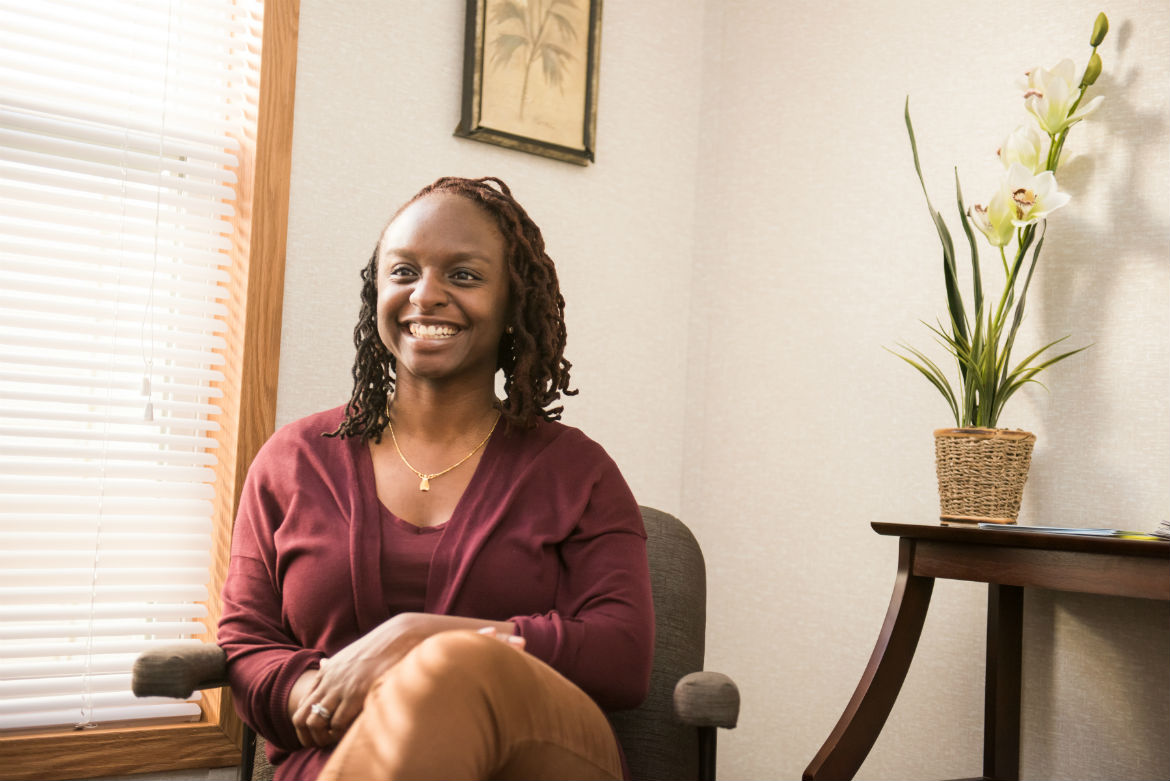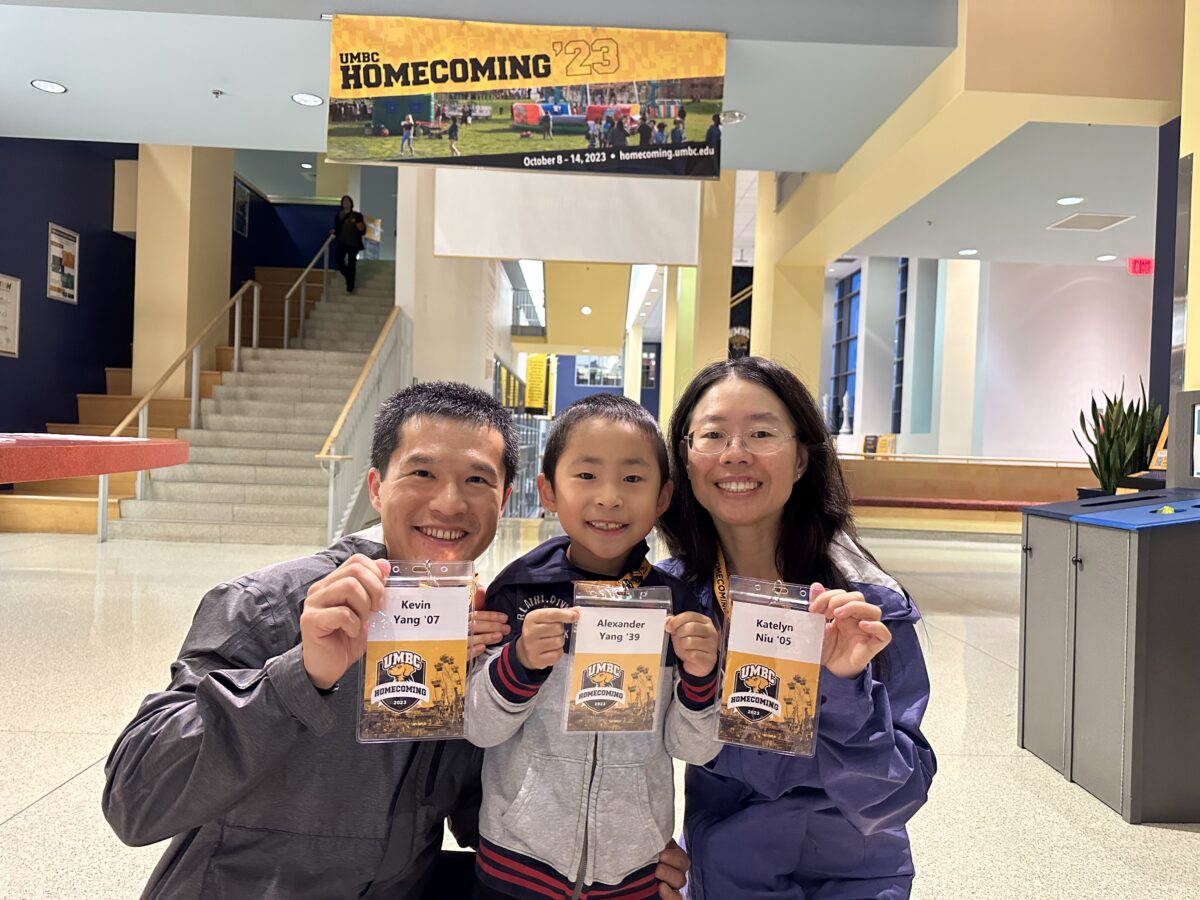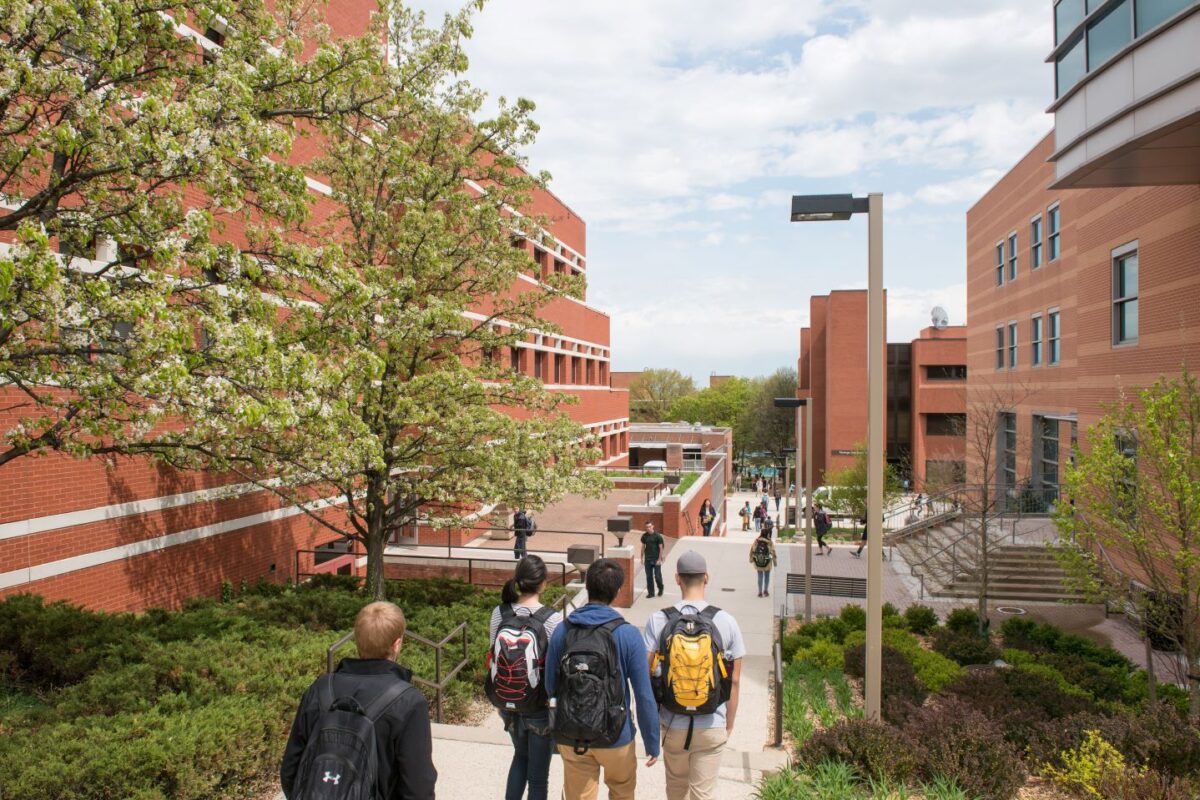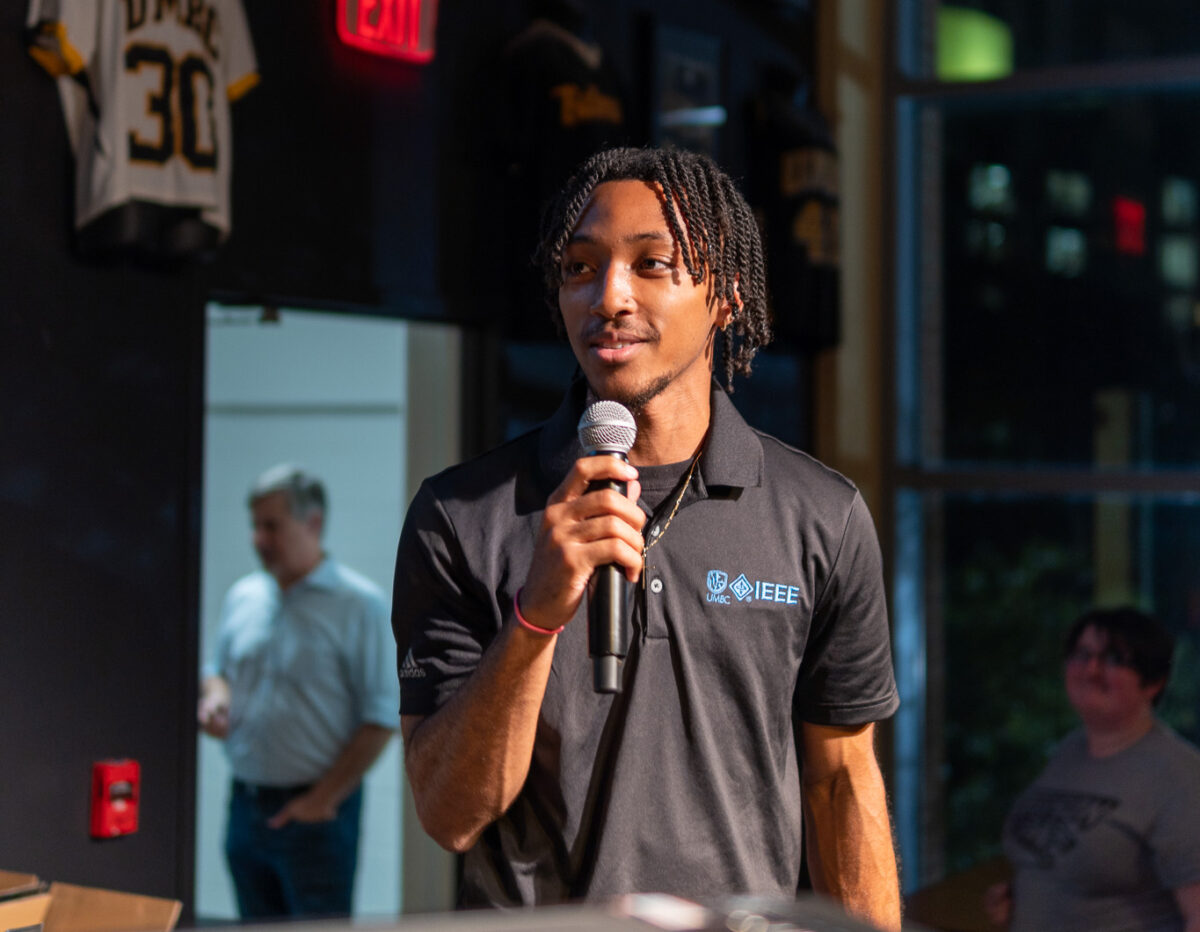When asked what kind of advice she has for first-year students as an alumna, Chinedu Onyedike Varma ’04, M12, interdisciplinary studies, has a simple answer: find your passion, get involved, and have fun – “as long as it’s safe,” she’s quick to add.
As a consulting psychiatrist at the UMBC Counseling Center, keeping students safe is a big part of her job, along with giving them the mental health support they need to have the best college experience possible.
Students seek out Counseling Center services for a whole range of concerns, whether they’re grappling with anxiety and depression, questioning aspects of their identity, or dealing with the myriad stresses that come from both college life and the daily news cycle. Last year, more than 1,000 individual students visited the center, according to its director, Bruce Herman.
“I think there’s starting to [be] better recognition of how important mental health is, but despite this, there’s still this huge stigma,” says Varma. To her, her role is not just to treat students, but to educate them on how to navigate their formative years.
Varma knew from a very young age that she wanted to be a doctor: “My mom was a nurse, and she often had her stethoscope, and I would play with it. That’s where I got the idea.” When she got to UMBC, she forwent the traditional pre-med route to design an INDS major in biomedical ethics, which she figured would set her apart from the crowd when application time came. Like many students do, she re-evaluated her career goals throughout her time at UMBC. After graduation, she returned to her home state of Virginia to serve a year with the AmeriCorps VISTA program, and became a certified mediator for family and small-claims court cases, which helped her hone her skills as a communicator.
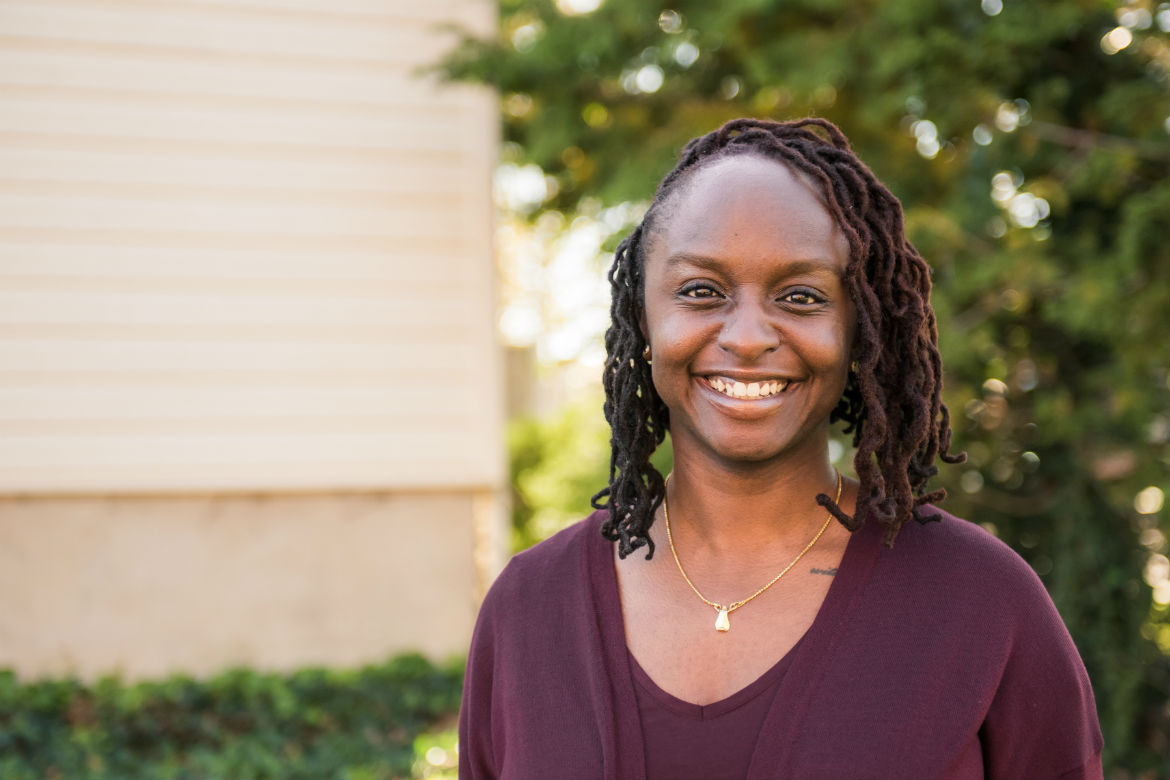 At the end of her year of service, Varma enrolled at the Johns Hopkins University School of Medicine, where she started out in internal medicine, but wound up enjoying her pediatrics rotation a lot better. It was a sub-internship in the pediatric HIV clinic, where she worked weekly with a psychiatrist who treated children facing unimaginable circumstances, that convinced her to go in another direction entirely.
At the end of her year of service, Varma enrolled at the Johns Hopkins University School of Medicine, where she started out in internal medicine, but wound up enjoying her pediatrics rotation a lot better. It was a sub-internship in the pediatric HIV clinic, where she worked weekly with a psychiatrist who treated children facing unimaginable circumstances, that convinced her to go in another direction entirely.
“The patients would come in, and they were predominantly born with HIV. [They] would be depressed or anxious…like, ‘I’m not going to have a life, what’s the point, why did my mother do this to me…I’m not going to be able to get married, I’m not going to be able to have kids.’ And in that depressed state, in that anxious state, they were not really making the best decisions.”
For Varma, the experience was “heartbreaking and fascinating,” and spoke to her interest in public health, along with working with young people. She went on to earn an M.D./M.P.H. and complete an adult psychiatry residency at Hopkins before serving as chief resident in her child and adolescent psychiatry fellowship at New York Presbyterian Hospital and Cornell University.
In 2015, Varma returned to Baltimore to start a career in community mental health, working with youth in Baltimore City Public Schools and in juvenile detention centers. When she started looking for work that would allow her to spend more time with her newborn daughter, she came across a part-time position at the counseling center at another university in Maryland.
While some child and adolescent psychiatry fellowships offer clinical rotations at colleges, hers did not, and when she started her new position, surrounded by students and trainees, she fell in love with being on a campus again.
“I really like academics in general,” she says. “I enjoyed training at Hopkins, I enjoyed those university settings, and that was the pull for me. […] When I got there, I was like…this. Is. Awesome. This is so great. I want to do this all the time.”
Varma enjoyed the new job so much that she wrote to the counseling center at UMBC, asking if there were any open positions for a consulting doctor. Now, she works part of the week in a small, unassuming practicum office in the portable building across from Erickson Hall, dividing the rest of her time between two other colleges.
It’s an interesting time to be a mental health professional, no less a mental health professional in a university setting. At UMBC, many of Varma’s patients are international or immigrant students who face an uncertain future under the current presidential administration.
“For a lot of reasons, this is an emotionally trying time for a lot of people,” she says. “Especially on this campus, I have a greater appreciation for those students that are coming from other countries…[regarding] their concerns about ‘Where am I going to be next semester? Am I going to be allowed to be in this country?’” She has also met with several students concerned about their fellow Retrievers in light of the current political climate.
No matter their concerns, Varma wants students to know the Counseling Center is open to them all.
“Someone that’s struggling…wants to be able to know that there are treatments that work, there are people that can help, that the Counseling Center is there on campus and accessible,” she said. “Students are … incredibly grateful for the dedication and support that the counseling center staff provides…[and] being able to set them up for success is a big motivating factor for me.”
— Julia Celtnieks ’13
photos by Marlayna Demond ’11
Tags: meyerhoff, Meyerhoff Scholars, mhoff

